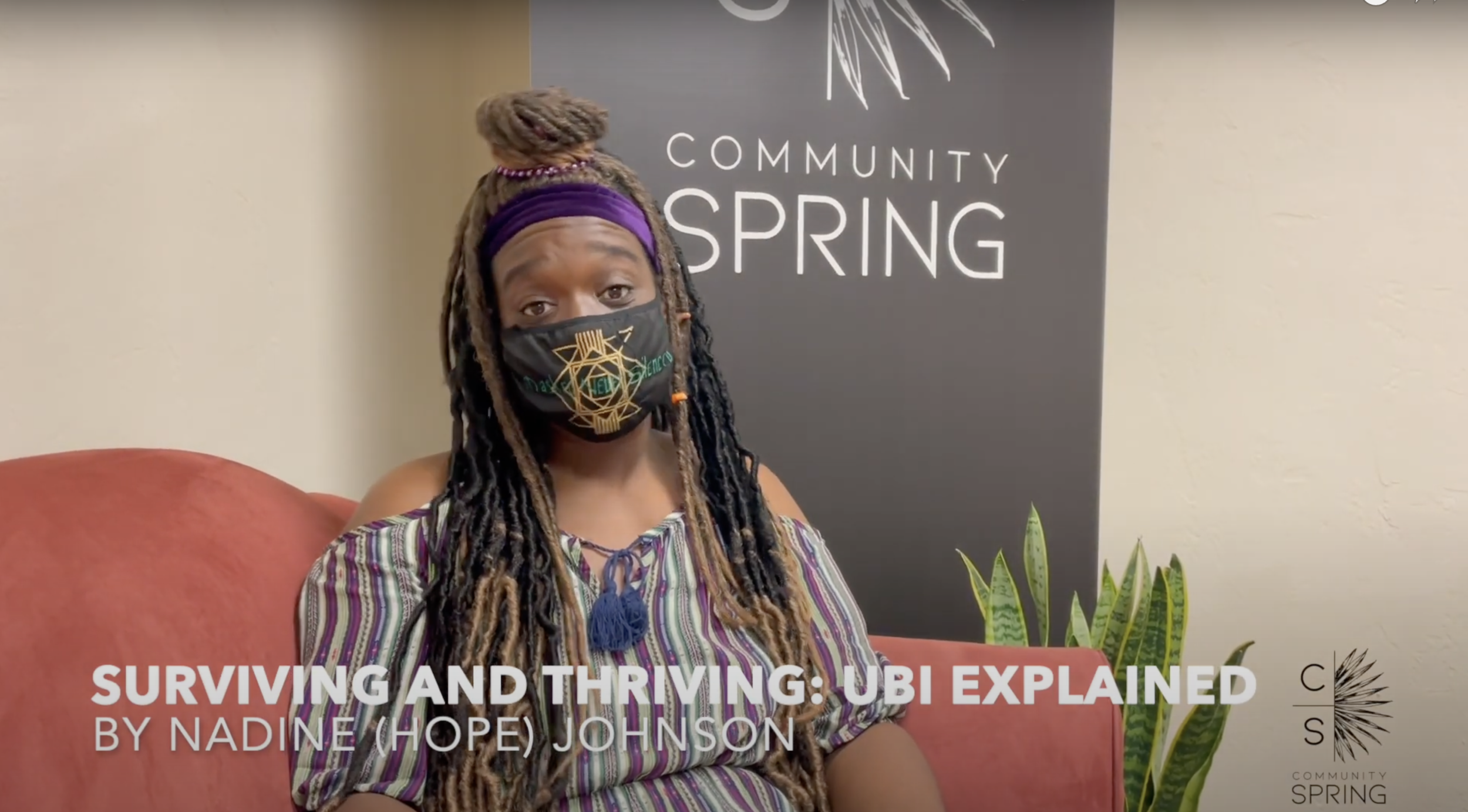Surviving and Thriving: Universal Basic Income Explained
When temperatures dropped last week, I felt my heart rate go up. Whenever it’s above 80 degrees or below 65 degrees, I’m plagued by anxiety that I won’t be able to afford the utility bills. This constant fear is not unique to me. Poverty crushed 34 million Americans even before COVID hit, and we have about a 31% poverty rate right here in Gainesville.
As conversations happen locally and nationally about a universal basic income, or UBI, I’ve been thinking about how this would reduce financial stress in my life and for those I care about. A UBI is a public program designed to increase people's income. A regular cash payment is delivered to everyone in a given population (e.g. adult U.S. citizens) with minimal or no requirements for receiving the money. Not only would a UBI end the material hardship of poverty, it would allow people to expand the possibilities they see for themselves and have more freedom to pursue a fulfilling life.
In terms of ending material hardship, I could use the A/C or the washer and dryer without the paranoia of my utility services being shut off. I could rest assured that I will not be evicted because I missed work to stay home and nurse my sick child. In short, I would know that I at least have enough to get by. Contrary to outdated stereotypes, I would not stop working and just live off of the government. Quite the opposite, in fact. As the stress from financial insecurity lessens, plans for myself expand.
Poverty is not just about material well-being, it also shapes your frame of mind. At times I have lowered my expectations of life and of myself, because if money makes the world go round and you don't have any, then why try? My lack of money felt like yet another slammed door, which discouraged me from looking for new opportunities. This creates two separate worlds: a life of seemingly endless options for the financially stable, and a life devoid of meaningful choices for people in poverty. In other words, economic inequality is not just about some people having more money than others, it’s about possibilities. Being stuck in a box of crisis response limits the possibilities you can see for your future. A UBI would break down those barriers and expand people’s horizons.
A UBI would also be a tool for increasing freedom and fulfillment more broadly. Nowhere is this more clear than as a parent. While I often talk to my children about the importance of using money responsibly, I don’t want to constantly shoot down their dreams with comments such as: “there’s no money in that” or ”that's not a good job.” This way of thinking blinds you to anything but your immediate need for money. You can’t afford to listen to what speaks to you unless it’s attached to a large dollar amount. Your own inner compass becomes a mistrusted nuisance in your desperation to keep your head above water. A UBI would provide the financial stability that’s necessary for my children - and everyone’s children - to pursue their dreams. It would expand their vision beyond that of immediate crisis and allow them to think about fulfillment instead of just survival.

